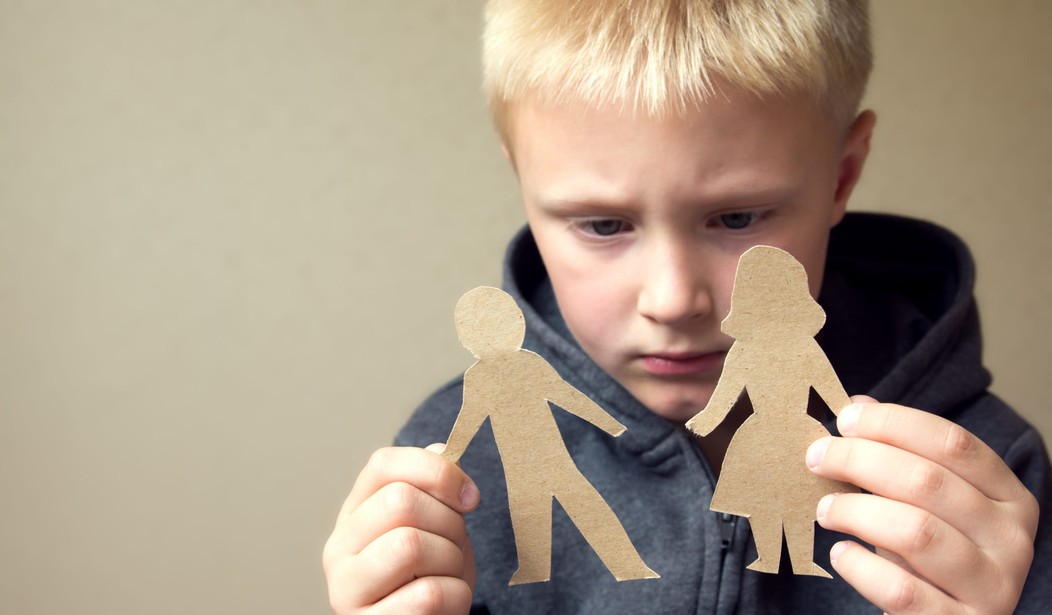Children and other minors under 18 are not mature enough to consent to experimental puberty-blocking drugs, according to a lawsuit filed by a psychiatric nurse in Britain. The nurse, Susan Evans, is suing her former employer, Britain’s state-funded transgender clinic, seeking a court decision making it illegal for minors to be prescribed “puberty-blocking” drugs.
Just last year, 2,590 children were referred to the gender identity development service (GIDS) at the Tavistock and Portman NHS foundation trust, up from just 77 in 2010. Evans filed the case against the trust at the High Court in London on Wednesday.
“It’s an experimental treatment,” Evans told Reuters. “It is described by the Tavistock as fully reversible – but clinical experts outside the Tavistock that I have spoken with suggest that you cannot possibly say that, as it is an experimental treatment.”
For her lawsuit, Evans teamed up with Mrs. A, the anonymous mother of an autistic girl who struggles with gender dysphoria.
“I have deep concerns that the current clinical approach at GIDS means that my daughter will be subjected to an experimental treatment path that is not adequately regulated, where there are insufficient safeguards, where her autism will not be properly accounted for and where no-one (let alone my daughter) understands the risks and therefore cannot ensure informed consent is obtained,” the mother said.
“Many professionals are now highly concerned about the treatments for under 18 gender dysphoric children and adolescents which remain largely experimental,” Evans explained in a crowdfunding appeal for support with the case. “There are so many unanswered questions that include the age at start, reversibility; serious adverse health events, long term effects on mental health, neurological effects on cognitive functioning, the effect on bone density, circulatory systems and sexual functioning in adulthood.”
“We cannot stand by and watch young people be part of an experimental medical treatment that exposes them to very significant risks. We should be providing thoughtful, expert, longer term psychological help and therapy, which research has shown to be helpful for many of these children,” the psychiatric nurse argued.
“Nearly 100% of the patients who commence the blocker… go on to take cross-sex hormones, so therefore you are committing them on a pathway to life-changing drugs and a medicalised future,” she warned.
Evans cited Carl Heneghan, a professor at Oxford’s Centre for Evidence-Based Medicine, who noted that so-called “puberty-blocking” drugs—Gonadotrophin-releasing hormone agonists (GnRHa)— are “a momentous step in the dark.” He referenced three major concerns: 1) young people are left in a state of ‘developmental limbo’ without secondary sexual characteristics that might consolidate gender identity; 2) use is likely to threaten the maturation of the adolescent mind, and 3) puberty blockers are being used in the context of profound scientific ignorance.”
Indeed, endocrinologist Dr. Michael Laidlaw told PJ Media that these drugs give patients a disease: hypogonadotropic hypogonadism, which occurs when the brain fails to send the right signal to the gonads to make the hormones necessary for development.
While endocrinologists — doctors who specialize in hormones and the endocrine system — are familiar with the disease and gladly treat it when a patient has been diagnosed, many of them are effectively causing their patients to contract the same disease in an attempt to affirm gender identity, Laidlaw said. “An endocrinologist might treat a condition where a female’s testosterone levels are going to be outside the normal range. We’ll treat that and we’re aware of metabolic problems. At the same time, an endocrinologist may be giving high levels of testosterone to a female to ‘transition’ her.”
Laidlaw insisted that when people are given far more of the opposite sex hormone than their bodies can handle, they are at “increased risk for cardiovascular disease, cardiovascular death, deep vein thrombosis. They’ve looked at adults taking these hormones and have seen already these cardiovascular risks.” When these drugs are administered to children, “one would presume it’s the same or even worse, in the long run.”
By preventing the natural process of hormones for growth development, this kind of drug in kids “blocks development of their organs, and their growth is stunted. If it’s started in early puberty, these kids will not develop mature sperm or eggs, they will be infertile. If they have gonads removed, they will be sterilized.”
“They’re going to end up with lower bone density, perhaps stunted brain development,” the doctor explained. “A lot of the brain impact is unknown. There seems to be some brain development that is sex hormone-dependent.”
Laidlaw insisted that giving these drugs to children is a form of child abuse. “If you have children, they can’t consent because they may not have the intellectual capacity or emotional maturity to understand the consequences of what’s going to happen to them,” he argued. “Puberty blockers and cross-sex hormones — they’re going to be infertile. What 11-year-old is ready to have a kid? How would they know what that means? If you want to fully inform a child, you really cannot. Even if you tell the parents, how can the parent decide it? You can’t really do it.”
The issue of exposing children to puberty-blocking drugs drew national attention in the custody case of 7-year-old James Younger. The boy’s mother insisted her son was really a girl because he liked the movie Frozen and asked for a girl toy at McDonald’s. A jury awarded her custody even though she intended to place the boy on puberty-blocking drugs that would result in chemical castration. She also admitted her intention to remove his genitals. After a judge awarded joint custody, the boy went to school dressed as a boy.
After this case, many U.S. states are expected to pass laws protecting children from experimental drugs. This lawsuit aims to do something similar in Britain.
Follow Tyler O’Neil, the author of this article, on Twitter at @Tyler2ONeil.









Join the conversation as a VIP Member